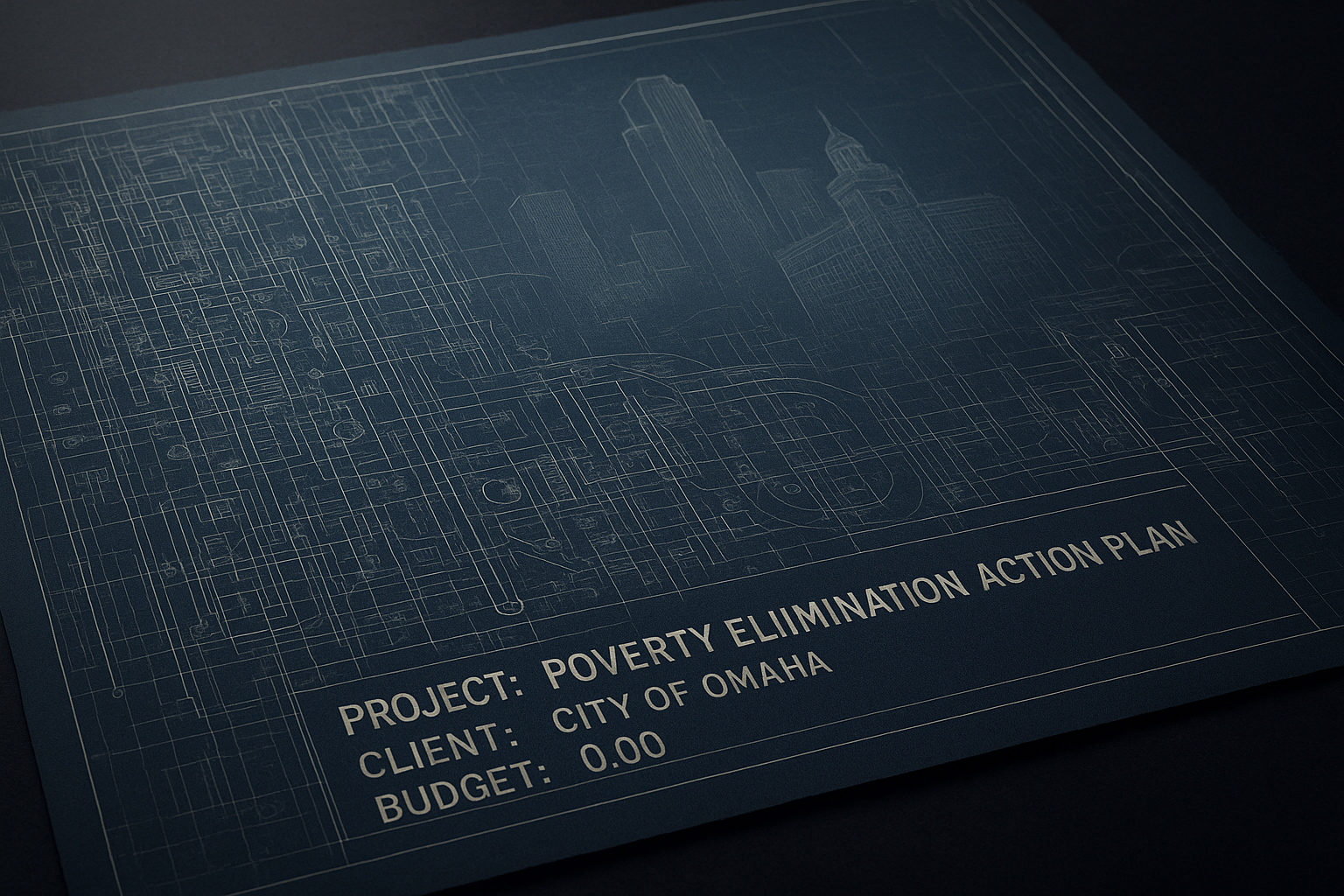Omaha, We Have a Plan. Now If We Only Had a Plan to Pay for the Plan.

As someone who used to design systems that had to actually work—you know, with annoying constraints like budget, gravity, and the laws of thermodynamics—watching the Omaha City Council debate the Poverty Elimination Action Plan was a special kind of experience. The state legislature, in a moment of what I can only assume was performative compassion, mandated that Omaha must create a detailed plan to eliminate poverty. Wonderful. We all want that. The catch? They provided exactly zero dollars to accomplish this lofty goal. It’s like being told to build a Mars rover with a budget that covers a bus pass and a pack of gum. Best of luck, guys.
The result is a 172-page document that is, frankly, a beautiful piece of academic work from our local university wonks. It's got charts. It's got data. It's got bold recommendations that range from the eminently sensible (workforce training, housing support) to the politically explosive (references to the "Nordic model," guaranteed income initiatives). It's a progressive's wish list bound in a city-stamped cover. And it has the structural integrity of a house of cards in a wind tunnel, because underpinning all these grand ideas is a footnote that basically says, "Figure out how to pay for this yourselves."
The council debate that followed was as predictable as it was telling. The chamber instantly split into its ideological camps. One side saw an unfunded mandate, the specter of higher taxes, and an affront to individual responsibility. The other saw a necessary acknowledgment of systemic barriers, a moral call to action, and a simple matter of historical justice. It was a perfect microcosm of our national political theater, played out under the fluorescent lights of the legislative chambers, with the fate of a plan that has no money hanging in the balance. Everyone agrees poverty is bad, which I guess is a blessing in today's political landscape. They just fundamentally disagree on the universe it exists in.
Ultimately, the plan passed on a razor-thin 4-3 vote. So, we have officially adopted a plan. We have checked the box for the state. But as an engineer, I can’t help but see this for what it is: a sophisticated simulation with a critical variable left undefined. A plan without a plausible path to funding isn't a plan; it's a statement of values. It's a wish. And while wishes can be powerful, they don't patch a roof, fill a prescription, or pay the rent. We are masters of planning. The implementation part, however, is where the simulation always seems to crash.